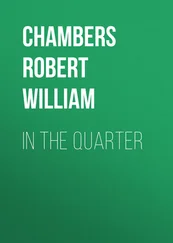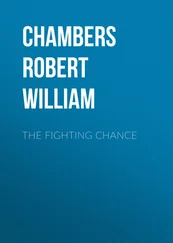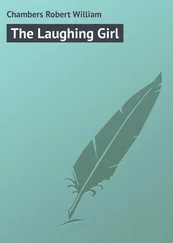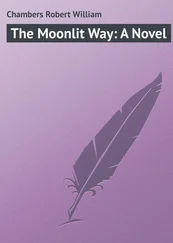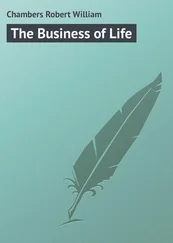Robert Chambers - The Girl Philippa
Здесь есть возможность читать онлайн «Robert Chambers - The Girl Philippa» — ознакомительный отрывок электронной книги совершенно бесплатно, а после прочтения отрывка купить полную версию. В некоторых случаях можно слушать аудио, скачать через торрент в формате fb2 и присутствует краткое содержание. Жанр: foreign_prose, на английском языке. Описание произведения, (предисловие) а так же отзывы посетителей доступны на портале библиотеки ЛибКат.
- Название:The Girl Philippa
- Автор:
- Жанр:
- Год:неизвестен
- ISBN:нет данных
- Рейтинг книги:3 / 5. Голосов: 1
-
Избранное:Добавить в избранное
- Отзывы:
-
Ваша оценка:
- 60
- 1
- 2
- 3
- 4
- 5
The Girl Philippa: краткое содержание, описание и аннотация
Предлагаем к чтению аннотацию, описание, краткое содержание или предисловие (зависит от того, что написал сам автор книги «The Girl Philippa»). Если вы не нашли необходимую информацию о книге — напишите в комментариях, мы постараемся отыскать её.
The Girl Philippa — читать онлайн ознакомительный отрывок
Ниже представлен текст книги, разбитый по страницам. Система сохранения места последней прочитанной страницы, позволяет с удобством читать онлайн бесплатно книгу «The Girl Philippa», без необходимости каждый раз заново искать на чём Вы остановились. Поставьте закладку, и сможете в любой момент перейти на страницу, на которой закончили чтение.
Интервал:
Закладка:
When they had driven a little distance, the men in the car across the brook caught sight of them; the driver left his wheel and sprang out; and from either door of the tonneau the three other men followed, revolvers lifted. There was no shouting; not a word spoken; not a sound except the hard, dry crack of the pistols.
"I don't know," said Warner coolly, "whether this horse will stand our fire, but if they cross the stream we'll have to begin shooting… We'd better begin now anyway, I think." He drew rein, turned in his seat, and fired two shots in quick succession. The horse started, and, instantly checked, stood trembling but behaving well enough.
Another shot from Halkett brought the running men to a halt. Warner drove on immediately; three of the men started to follow on a run, but half a dozen rapid shots brought them to a dead stop again. And again the dogcart jolted slowly forward.
One of the men made a furious gesture, turned, and ran back to the mud-stalled car; two of the others followed to aid him to extricate the machine; the fourth man, skulking along the stream, continued to advance as the dogcart drove on.
Warner, driving carefully, shoved with his foot a box of clips toward the dashboard; Halkett reloaded both automatics. Presently the cart turned east, descending the hard slope toward the stream again; and the man who had followed them along the swampy brook immediately opened fire.
Halkett and Warner sprang out; the former shouldered the planks and ran forward; the latter, holding his nervous horse by the head, fired at the man among the reeds as he advanced toward the stream.
It seemed odd that so many bullets could fly and hit nothing; Halkett heard them whining over his head; the horse heard them too and threatened to become unmanageable. Far up the stream the three other men were laboring frantically to disengage the grey automobile; the man across the creek, routed out of the reeds by the stream of bullets directed at him, was running now to get out of range. Evidently his automatic was empty, for it merely swung in his hand as he ran.
But what occupied Warner was the course the man was taking, straight for the lower gate in the hedge.
"Jump in!" he called to Halkett. "We can't wait for the other planks!" The Englishman swung up beside him; the whip whistled and the horse, now thoroughly frightened, bounded forward down the slope and took the improvised bridge at a single leap. For one moment it looked like a general smash, but the cart stood it, and, after a perilous second, righted itself.
Straight at the closed gate drove Warner, whipping his horse into a dead run; crashed through the flimsy pickets, slashed mercilessly with his whip at the man who pluckily stripped off his coat and strove to make the horse swerve into the hedge, as a toreador waves his cloak at a charging bull.
Halkett could have shot the man; but he merely turned his weapon on him as they dashed out into the highroad once more, and tore away due south through the rose and golden glory of the sunset.
The horse ran a flat mile before Warner chose to ease him down; the summer wind whistled in their ears; the last glow faded from the purpling zenith; the crimson streak on the river surface, which had run parallel on their left like level and jagged lightning, glimmered to a pallid ochre tint; and the flying mist of trees and bushes which had fled past like an endless rush of phantoms now took shape and substance once more above the rising veil of river mist.
Warner's tense features were flushed with excitement. As he gradually eased in his horse he was smiling.
"Well, what do you know about this performance of ours, Halkett?" he inquired rather breathlessly. "Can you beat it in the movies?"
"I'm wondering what I've let you in for," said the Englishman very seriously.
"I'll tell you," laughed Warner; "you've let me in for a last glimpse of my youth – the days when everything went and every chance for mischief was gratefully seized – the days when I was a subject of the only real democracy on earth – the Latin Quarter – the days that dawn no more, Halkett. This is the last gleam from their afterglow. Nosce tempus ! But the sun has set at last, Halkett, and the last haymaker is going home."
"It would not have been very amusing if one of those bullets had knocked you off your seat," remarked Halkett.
"But they didn't, old chap!" returned Warner heartily. "It was a good mix-up – exciting, harmless, and beneficial. I feel years younger. Respectability is a good, warm coat for the winter of life; but one feels its weight in Indian summer."
Halkett smiled but shook his head:
"No good hunting trouble. You've only to turn around any time to find it sniffing in your tracks."
"You don't understand. For years I've worked very steadily, very seriously. I've painted, studied, read; I've made a living by selling some pictures, by royalties on the reproduction of pictures, by teaching a summer class of girls. After a while, you know, one goes stale with respectability. I went out to the East and saw the Balkan fighting. It helped some. I made some sketches last year in Mexico. That helped.
"But there's an exhilaration about lawbreaking – or in aiding and abetting a lawbreaker – that has the rest beaten to a batter. Today's misdeeds mean a new lease of life to me, Halkett."
The Englishman laughed. He was still cradling the two automatics on his knees; now, with a careless glance behind him, he leaned forward and replaced them in their respective holsters.
"For a rather celebrated and weighty member of the social structure," he remarked, "there is a good deal of the boy left in you."
"When that dies in a man," returned Warner lightly, "creative and constructive work end. The child who built with blocks, the youth who built airier castles, is truly dead. And so is the man he has become."
"Do you think so?"
"I know it. The same intellectual and physical restlessness drives one to create and construct, which, as a boy, drove one into active and constructive mischief. When the day dawns wherein creating no longer appeals to me, then I am old indeed, Halkett, and the overcoat of respectability will suit me the year round… I'm very glad that I have found it oppressive this July day. By the way, what day does it happen to be?"
Halkett said:
"It happens to be the last day of July. I have an idea that several billion other people are destined to remember these last few days of July, 1914, as long as they live."
"Why?" inquired the American curiously.
"Because, within these last few days, Austria has declared war on Servia, Russia has already ordered partial mobilization, Germany has sent her an ultimatum, and will back it up tomorrow."
"What! How do you know?"
"You don't mean to ask me that, do you?" said Halkett pleasantly.
"No, of course not – " Warner gazed straight ahead of him as he drove; his altered features had become gravely expressionless. After a moment he said:
"I can't comprehend it. Servia had agreed to everything demanded – except that one item which she offered to arbitrate. I can't understand it."
Halkett said calmly:
"It is not difficult to understand. A telegram has been suppressed – the only telegram which could now prevent war." He removed his straw hat, took from the lining a strip of semi-transparent paper, and read aloud the minute handwriting:
"The German government has published several telegrams which the Emperor of Russia exchanged with Emperor William. Among these telegrams, nevertheless, is one which was not published – a dispatch from His Russian Majesty, dated July 29, 1914, containing a proposition to submit the Austro-Servian conflict to The Hague Tribunal.
"This has an appearance of a desire in Germany to pass over in silence the attempt to prevent the approaching collision. In view of this, the Minister of Foreign Affairs is authorized to publish the telegram mentioned, of which this is the text:
Читать дальшеИнтервал:
Закладка:
Похожие книги на «The Girl Philippa»
Представляем Вашему вниманию похожие книги на «The Girl Philippa» списком для выбора. Мы отобрали схожую по названию и смыслу литературу в надежде предоставить читателям больше вариантов отыскать новые, интересные, ещё непрочитанные произведения.
Обсуждение, отзывы о книге «The Girl Philippa» и просто собственные мнения читателей. Оставьте ваши комментарии, напишите, что Вы думаете о произведении, его смысле или главных героях. Укажите что конкретно понравилось, а что нет, и почему Вы так считаете.




